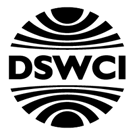
The Danish Shortwave Club International

The Danish Shortwave Club International
RFA’s
Technical Operations Division is proud to announce the release of the
company’s tenth QSL card commemorating the 50th anniversary of
the Danish ShortWave Club International (DSWCI). The card is scheduled
for distribution from April 1 to June 30, 2006. Formed in 1956, the
DSWCI happily lays claim to being global 30 years before
‘globalization.’ The Danish Shortwave Club International is
one of the leading DX-Clubs in the World, with more than 230 members in
36 countries. The object of the DSWCI is to consolidate contacts among
those involved in the hobby of DXing and to promote the hobby in
general. DXing is the reception of distant radio signals and all other
related activities. For more information about RFA’s automated
reception report system and its QSL cards, visit www.techweb.rfa.org.
Radio Free Asia (RFA) is a private, nonprofit corporation that broadcasts news and information to listeners in Asian countries where full, accurate, and timely news reports are unavailable. Created by Congress in 1994 and incorporated in 1996, RFA currently broadcasts in Burmese, Cantonese, Khmer, Korean to North Korea, Lao, Mandarin, the Wu dialect, Vietnamese, Tibetan (Uke, Amdo, and Kham), and Uyghur. RFA strives for accuracy, balance, and fairness in its editorial content. As a ‘surrogate’ broadcaster, RFA provides news and commentary specific to each of its target countries, acting as the free press these countries lack. RFA broadcasts only in local languages and dialects, and most of its broadcasts comprise news of specific local interest.
Reception reports are valuable to radio stations; they help us evaluate the signal strength and quality of our transmissions. Radio stations, like RFA, usually confirm accurate reception reports by mailing a "QSL Card." To make the best of changing propagation conditions, RFA rotates frequencies during different seasons to maintain the best possible coverage.
RFA welcomes all reception report submissions at www.techweb.rfa.org (follow the QSL REPORTS link,) not only from DX’ers, but from its general listening audience as well. Reception reports are also accepted by email at qsl@rfa.org. For anyone without Internet access, reception reports can also be mailed to:
Reception Reports
Radio Free Asia
2025 M. Street NW, Suite 300
Washington DC 20036
United States of America.
Upon request, RFA will also send a copy of the current broadcast schedule and a station sticker.